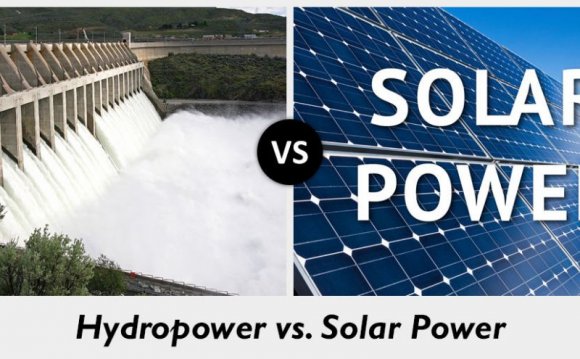
There's some ambiguity into the dining table. If it is just about electrical energy generation, that helps a great deal.
solar power
The two kinds of solar could easily get split in different ways. "solar energy panels" typically refers to photovoltaic generation of electrical energy from semiconductors. Solar thermal could mean the directly method of getting hot water from solar power thermal panels or other thermal harvesting mechanisms. otherwise it could refer to what's also called concentrating solar energy, CSP, whereby sunshine is targeted - either by a big assortment of monitoring mirros onto a central tower, or by parabolic troughs onto pipes - hence heat will be used to drive a turbine to come up with electricity. PV panels tend to be nearing readiness today; CSP is still during the grid-scale commercial prototypes. There is low anxiety on costs of PV, as well as on the price of drop of PV prices - it's known as Swanson's legislation, and works similarly to Moore's Law for computers. The IEA have famously been rather inept on predicting just how rapidly deployment would occur, and exactly how quickly prices would fall. There is high uncertainty regarding the costs of CSP.
hydro
Hydro refers both to storage hydro, where liquid is held in an upper reservoir, and released through turbines embedded in a dam or perhaps in the circulation channels downstream as a result, to build electrical energy; or to run-of-river hydro, in which electrical energy is generated as liquid moves down a lake and it is channeled through a turbine. Both are well-established technologies. There's suprisingly low anxiety over prices of both run-of-river and storage space hydro. (NB storage hydro varies to pumped-storage hydro; storage space hydro is a source of major generation; pumped-storage hydro is an easy method of saving surplus electrical energy as gravitational potential, and transforming it returning to electricity later, whenever required.)
trend
Wave energy is a nascent technology, and harvests the kinetic energy for the waves through pneumatics or other components. There are some prototypes in liquid. There is extremely high doubt over costs of wave energy.
tidal
Tidal flow can be a nascent technology, and utilizes the kinetic energy for the everyday or twice-daily (according to where you are on earth) to-drive a turbine. There are some prototypes inside liquid, and there's very high doubt over expenses of tidal stream.
Tidal barrages and lagoons utilize the level differences when considering high and reasonable tides to-drive liquid through turbines to build electricity. Tidal barrages tend to be established, while having medium uncertainty of expenses. Tidal lagoons are a little bit of a fad at the moment occasionally, unverified, with high uncertainty on expenses. This also applies to tidal reefs along with other variants.
Tidal is distinct within one interesting way from all others above. All of the others are solar energy, either right or indirectly. Tidal arises from gravitational power, not solar energy. (wind can be indirect solar power. Geothermal is different once more, becoming partially a product of nuclear responses in the crust, and partially the reservoir of temperature from development of the Earth)









